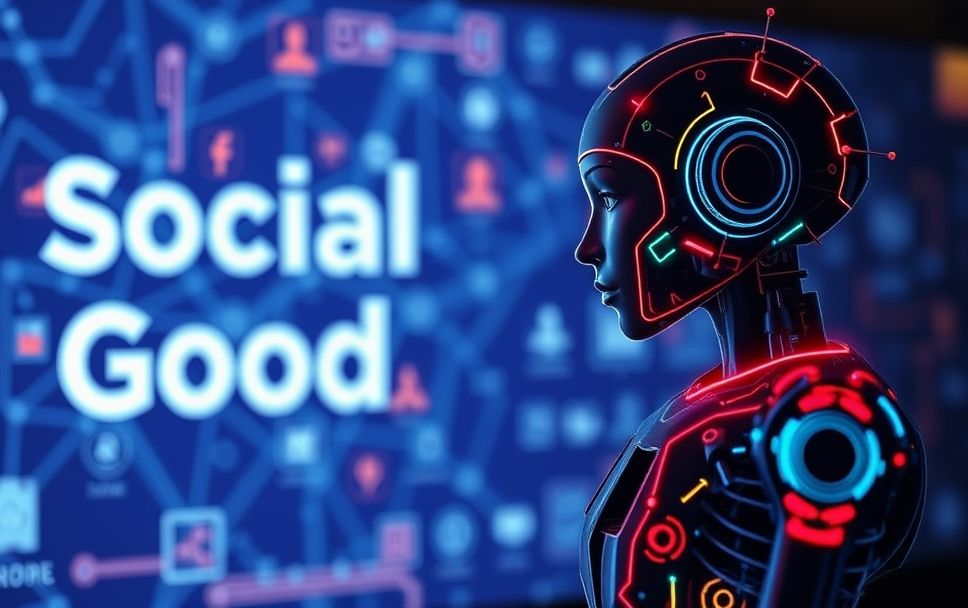Understanding AI for Social Good
AI for Social Good refers to the use of artificial intelligence technologies to address social challenges, enhance the welfare of communities, and promote sustainable development. This concept encompasses a wide range of applications, from disaster response and climate change mitigation to healthcare improvement and educational access.
As the world faces numerous pressing issues, the potential of AI to create positive change has garnered significant attention. By leveraging data and algorithms, AI systems can analyze complex problems, derive insights, and propose effective solutions, making it a powerful tool for driving social progress.
Importance of AI for Social Good
The importance of AI for Social Good lies in its ability to harness technology for the benefit of humanity. In an era where technology often exacerbates inequalities, AI presents opportunities to counteract these trends. Key reasons for its significance include:
- Addressing Global Challenges: AI can tackle issues such as poverty, health crises, and environmental degradation.
- Enhancing Decision-Making: Data-driven insights lead to more informed and effective policy decisions.
- Empowering Communities: AI tools can provide marginalized groups with access to resources and information.
Real-World Applications of AI for Social Good
Several organizations and initiatives exemplify the effective application of AI for social benefit. Here are a few notable examples:
1. Disaster Response
AI plays a crucial role in disaster management, helping to predict natural disasters and coordinate response efforts. For instance, the United Nations utilizes machine learning algorithms to analyze data from satellite imagery, enabling quicker assessments of disaster-affected areas and optimizing resource allocation.
2. Healthcare Improvement
In healthcare, AI systems can analyze vast amounts of medical data to assist in diagnosing diseases, predicting outbreaks, and personalizing treatment plans. For example, DeepMind‘s AI algorithms have shown promise in detecting eye diseases earlier than traditional methods, potentially saving patients’ sight.
3. Environmental Conservation
AI technologies contribute to environmental protection by monitoring wildlife populations and predicting climate change effects. Projects like Wildlife Insights use AI to analyze camera trap images, helping conservationists track endangered species and their habitats.
4. Education Access
AI enhances educational opportunities by providing personalized learning experiences and improving access to resources. Initiatives like Khan Academy employ AI to tailor educational content to individual learning paces, ensuring that students receive the support they need to thrive.
How to Implement AI for Social Good in Your Work
For developers and IT professionals looking to incorporate AI for Social Good into their projects, consider the following steps:
- Identify Social Issues: Start by identifying the pressing social issues in your community or area of expertise.
- Leverage Existing Data: Utilize publicly available datasets or collaborate with organizations to gather relevant data.
- Develop AI Solutions: Create algorithms that can analyze data and provide actionable insights.
- Engage Stakeholders: Collaborate with local communities and organizations to ensure your solution meets their needs.
Related Concepts in AI for Social Good
Understanding AI for Social Good also involves recognizing its connection to other relevant concepts:
- Machine Learning: A subset of AI that focuses on developing algorithms that allow computers to learn from data.
- Data Science: The field that involves statistical analysis and algorithms to extract insights from data, often used in AI applications.
- Sustainability: The practice of meeting current needs without compromising future generations, closely linked to many AI for social good initiatives.
Conclusion: The Potential of AI for Social Good
AI for Social Good represents a transformative approach to leveraging technology for the benefit of society. As AI continues to evolve, its potential to tackle complex social issues becomes increasingly apparent. By investing in AI solutions that prioritize social impact, developers and organizations alike can create a more equitable and sustainable future.
Reflect on how you can integrate AI for social good into your own work. Whether through developing innovative applications or collaborating with organizations, your contributions can make a meaningful difference in the world.









